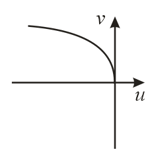Microscope
Microscope: Overview
This Topic covers sub-topics such as Compound Microscope, Simple Microscope, Optical Instruments, Resolving Power of Microscope, Objective of Microscope, Eyepiece of Microscope, Magnifying Power of Microscope and, Resolving Limit of Microscope
Important Questions on Microscope
A convex lens of focal length and a concave lens of focal length are kept along the same axis with a distance between them. If a parallel beam of light falling on leaves as a parallel beam, then is equal to _________ .
The focal length of magnifying glass is then magnifying power this instrument when image is formed at infinity is ( near point for normal eye)
An object is at distance from compound microscope of focal length and for objective and eye piece respectively. Magnifying power of microscope when image is formed at near point is
What is the position of the object for a simple microscope ? What is the maximum magnification of a simple microscope for a realistic focal length?
The numerical aperture of a microscope is _____ proportional to the refractive index.
Assertion: If a glass slab is placed on the letters of different colours, the apparent depth will be minimum for the violet-coloured letters.
Reason: The speed of light in the glass is maximum for violet colour among all the visible colours.
Match the column according to correct graph for real object.
| (A) | Concave mirror | (P) | 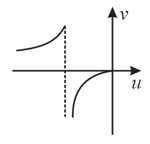 |
|
| (B) | Convax mirror | (Q) |
|
|
| (C) | Convax (Converging) lens | (R) | 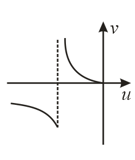 |
|
| (D) | Concave (diverging) lens | (S) | 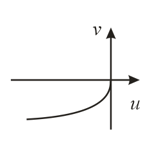 |
Discus about simple microscope and obtain the equation for magnification for near point focussing and normal focussing..
Discus about simple microscope and obtain an equation for magnification for near point focusing and normal focusing.
Define resolving power of microscope. How it is affected?
When wavelength of incident radiations is reduced.
When diameter of objective lens is reduced. Give reason for your answer.
How can you differentiate between a compound microscope and a telescope just by looking at it?
Final image obtained from a compound microscope is-
Final image obtained from a compound microscope is -
The value of distance so that final image is formed on the object itself is ___ .
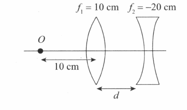
A biconvex lens made of glass has radius of curvature . It is kept in contact with a plane mirror. Find magnitude of power of optical device formed if space between them is filled with water in dioptre.
The magnification produced by the objective lens and the eye lens of a compound microscope are and respectively. The magnification of this microscope is , then find .
The plane faces of two identical plano-convex lenses each having a focal length of are placed against each other to form a usual biconvex lens. The distance from this lens combination at which an object must be placed to obtain a real, inverted image which has the same size as the object is
A convex lens of focal length 12.5 cm is used as a simple microscope. When the image is formed at infinite, Magnification is ______ (Near point for the normal vision is 25 cm).

